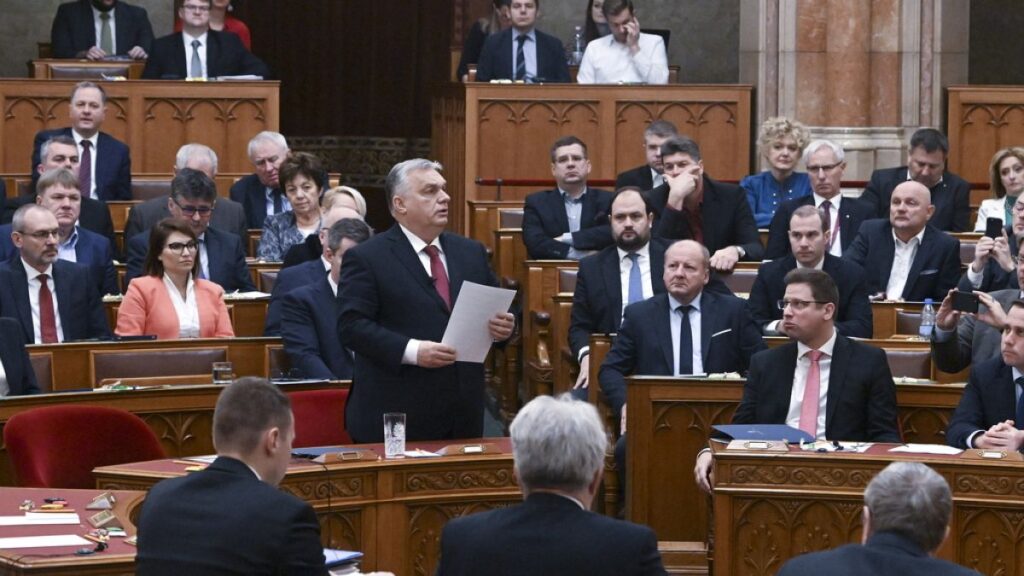The Hungarian Parliament adopted on Tuesday evening a series of measures establishing a supervisory authority responsible for preventing “foreign interference” in the electoral process, with prison sentences at stake.
The Hungarian Parliament adopted on Tuesday evening a series of measures establishing a supervisory authority responsible for preventing “foreign interference” in the electoral process, with prison sentences at stake.
The texts were approved by a large majority in a Parliament dominated by Viktor Orban’s Fidesz party, for entry into force scheduled for early February.
Intended to “protect the sovereignty” of the Central European country, this legislative package is seen by the detractors of the nationalist Prime Minister as a new offensive to muzzle the counter-powers.
A specialized authority, enshrined in the Constitution, will be set up. Its mission will be to “identify and investigate organizations that receive money from abroad” with the aim of “influencing the choice of voters”.
“This legislation closes the door to any electoral cheating and provides for sanctions of up to three years in prison for anyone using foreign funds in a campaign,” explained Mate Kocsis, head of the Fidesz parliamentary group, in November.
The government, which regularly accuses Brussels and “various organizations” of “distributing billions of euros” to the opposition, is thus toughening its arsenal before the municipal and European elections organized in June 2024.
The creation of such an authority has attracted widespread criticism in recent weeks.
The Council of Europe expressed concern at the end of November about a “risk” for human rights, calling on Hungary to reverse course.
Placed “under the authority of a president appointed by the President of the Republic on the proposal of the Prime Minister”, an “Office for the Defense of Sovereignty” would have “unlimited authority to request sensitive data and private information to anyone, without control and without legal recourse,” warned Human Rights Commissioner Dunja Mijatovic.
Several human rights NGOs, including Amnesty International, denounced in a press release the government’s desire to “silence critical voices”.
“Journalists, businesses, unions, churches and municipalities could also be targeted,” they warned.
The United States, through its ambassador to Hungary David Pressman, also expressed its concern.
“The proposed authority has a mandate whose scope is breathtaking,” he said at the beginning of December, criticizing a text “that would make Russian law on foreign agents pale in comparison.”




